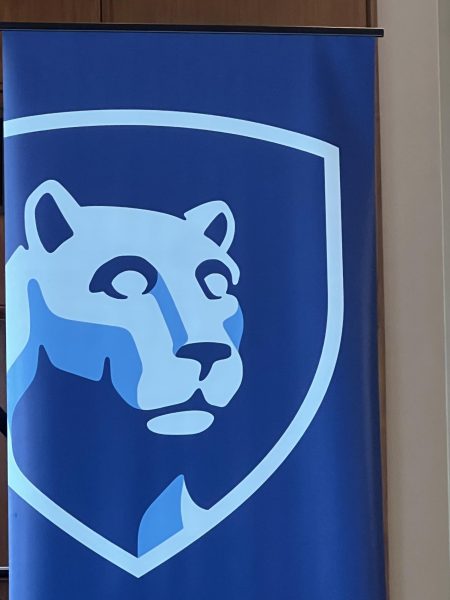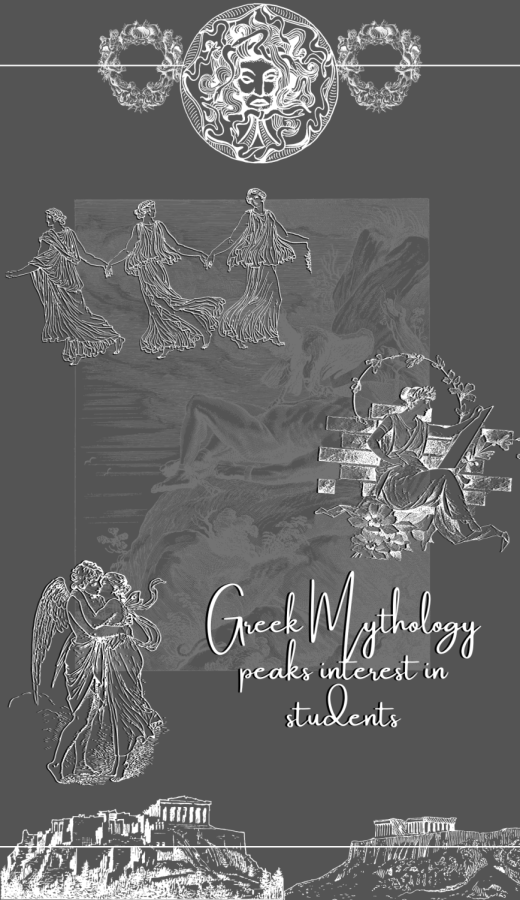Greek Mythology peaks interest in students
How do the epic stories form Ancient Greece effect today?
Courtesy of Canva
This year, I took a Greek Mythology course that only lasts for one semester. I signed up for it last year because I’ve always been intrigued with mythology, but I also took it because I know a lot of the bigger, more-known myths already. The class is a really great one, and I like the teacher, Anthony DeRubis, because he brings a lot of humor into the class and makes the course truly interesting.
I have always been a huge fan of Greek mythology, but I never really knew everything about it or even why it’s important. What’s so interesting about it is the fact that it’s a religion called Hellenism, and not just storybook tales, even though that’s just about what it is now. We started with a large religion that many used to follow to these tales of epic beasts, heroes, gods and titans just being another fairy-tale belonging to children’s books.
Some of my favorite myths are the more goofy ones, but I do like the ones with more development of the universe. My all-time favorite is about Persephone and Hades. It’s a brutal story of a sweet daughter, Persephone, being ripped away from her endearing mother, Demeter, by Hades. Hades yearns for Persephone under the result of Eros hitting him with a love arrow, but has to kidnap her in order to get her away from Demeter. With the kidnapping of her daughter, Demeter turns the world barren and nearly kills the human race due to her depressive state. Hades is willing to give Persephone back but only if she hadn’t eaten anything from the underworld. Unfortunately, Persephone ate a pomegranate and had to stay in the underworld as the queen for one third of the seasons, as Greece only ever had spring, the harvest season/fall and winter. This myth sticks out to me with the way they teach the seasons and make Hades not nearly as brutal as his brother, Zeus.
Another great myth is the myth of Prometheus and the theft of fire. Prometheus is the Titan of Fire, but is known as a great craftsman and trickster. Zeus had commissioned Prometheus to create and design the creatures of Earth, mankind, animals and more. with the help of his more air-headed brother: Epimethius. All creatures were made, but mankind was left with no special quality, but with pity, Prometheus gave them knowledge, and stole fire from Zeus atop Olympus. Zeus became enraged and chained Prometheus to a mountain and gave him a grueling punishment, but would not allow him to die.
Greek mythology isn’t too hard to understand nor overly complex. Every myth was made to explain sciences the ancient Greeks couldn’t understand. Zeus is the God of lightning and has a raging temper like no other, so when they experienced a mass amount of lightning they could easily just put the blame on a god tussling with others or even just being moody. Another example could be the ever so famous story of Arachne and Athena, where Arachne had an excessive amount of Hubris and thought she was better than Athena, the goddess of weaving. Athena, being a hard-headed goddess like her father, Zeus, turned Arachne into a spider. These antagonists in these myths are absolute idiots. If these gods and goddesses were all-powerful, why would anyone dare challenge them? It seems quite imprudent.
The class overall is interesting and a wide variety of people take it, giving people the opportunity to meet new people and make connections. There’s also a lot of projects, at least in DeRubis’ class, that are genuinely creative and fun. DeRubis is a super fun teacher and adds a lot of personality when he teaches. He also gives plenty of time for each assignment, which some teachers aren’t good with.
Many students in high school are stressed with honors or AP classes. However, Greek mythology is an easy going elective that allows students to learn while not causing mass amounts of stress.
Even though I enjoy mythology, there are so many myths that contradict each other and story writers that contradict each other. There have been many different variations of some stories which can make it confusing when attempting to learn about the subject. However, that’s why the class actually is given, and DeRubis explains and makes light of the contradictions quite well.
Greek mythology is an interesting topic, and I am ecstatic that the school offers a class that allows students to further explore a world of gods and goddesses.

Hello! My name is Lillian, or Lily, and I'm one of the Editor in Chiefs of the Mountain Echo. I've been writing since my sophomore year for the Mountain...









![The release of Lisa Frankenstein on February 9, 2024, has made it the best movie of the year so far. [Made with Canva]](https://aahsmountainecho.com/wp-content/uploads/2024/04/LisaFrankenstein-cover-1-450x600.jpg)
![Rivals. Spotify and Apple Music are the most even on the streaming-service playing field. Spotify was officially launched in 2008, and Apple Music in 2015. [Made with Canva]](https://aahsmountainecho.com/wp-content/uploads/2024/04/Spotify-vs-Apple-music-600x600.png)
![Lets go Bucs! The Pirates 2024 season started on March 28 with a game against the Marlins. [Made with Canva]](https://aahsmountainecho.com/wp-content/uploads/2024/04/Pirates-season-underway-600x600.jpg)



